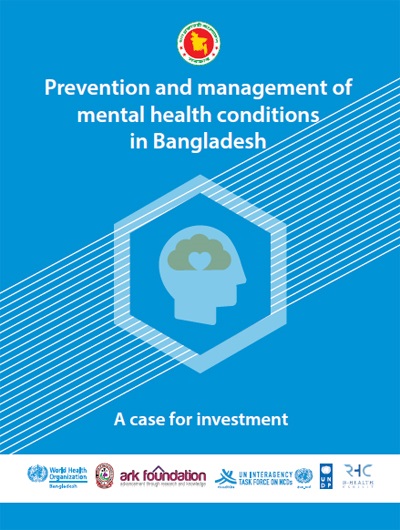Prevention and management of mental health conditions in Bangladesh
A case for investment

Overview
Mental, neurological and substance use conditions pose a significant challenge in Bangladesh, and the prevalence of depression, anxiety, psychosis, bipolar disorder, epilepsy and alcohol use disorders as major causes of morbidity and mortality is increasing. This presents a double challenge to Bangladesh: human suffering and a growing public health burden, with significant social and economic losses, including lost workforce productivity due to premature death, missed days of work (absenteeism) and impaired job performance (presenteeism).
This report provides evidence for the long-term economic, health and social benefits of investment in mental health. First, it describes an assessment of the current mental health situation in the country, including challenges and opportunities for developing the mental health system. Secondly, it presents economic evidence of the attributable, avertable burden due to a number of leading mental, neurological and substance use conditions. Intervention costs, health gains and economic benefits were estimated for clinical interventions for six leading mental health conditions (depression, anxiety, psychosis, bipolar disorder, epilepsy, and alcohol use disorder) and two population-based interventions (a pesticide ban and universal school-based social–emotional learning intervention).
